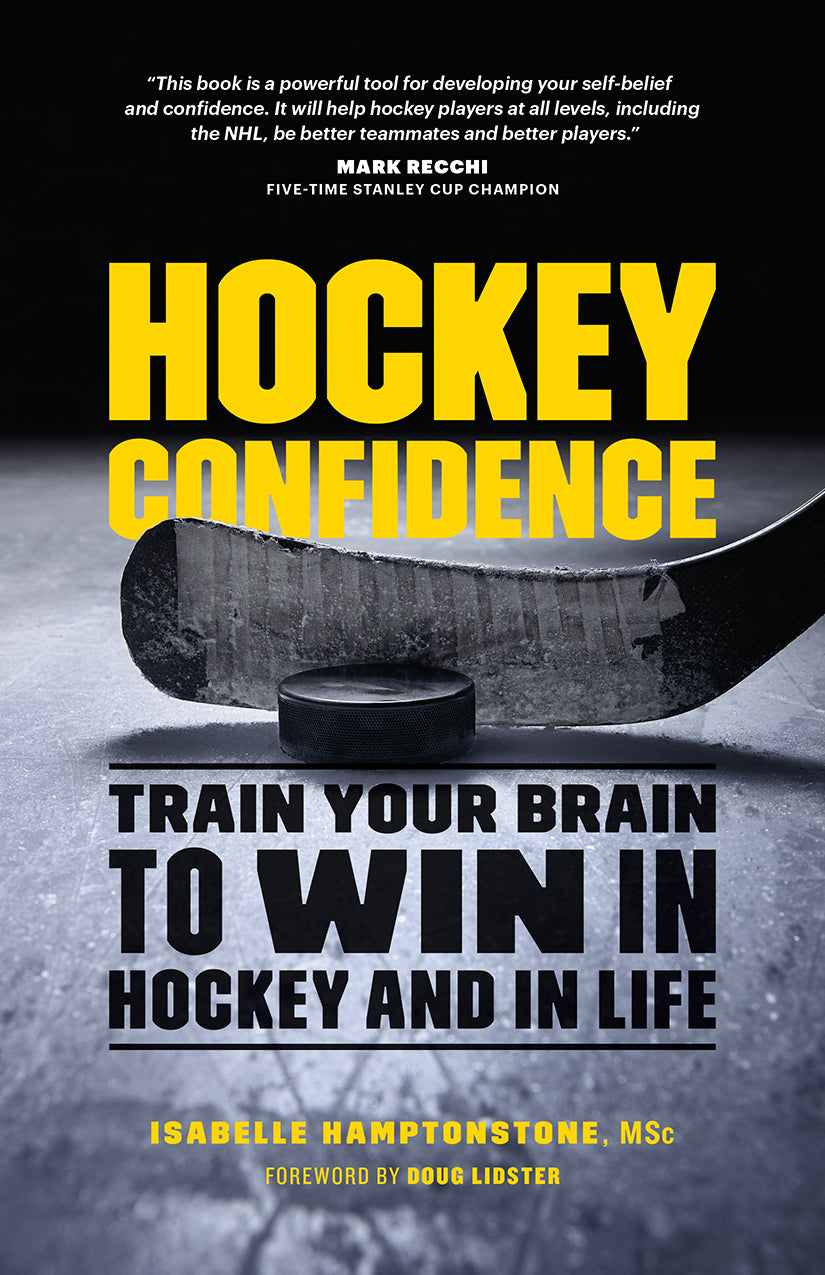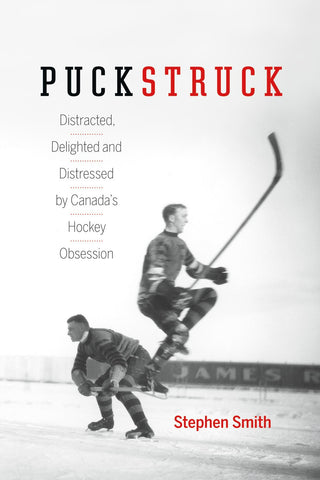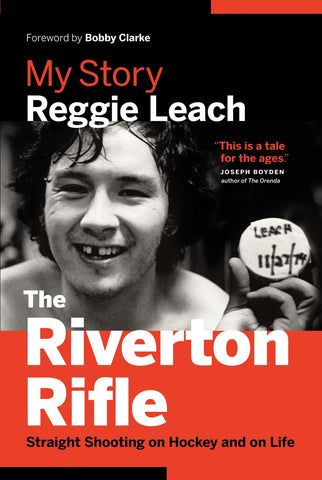Hockey Confidence
Train Your Brain to Win in Hockey and in Life
- ISBN: 9781771642019
- Tags: Doug Lidster, hockey, Isabelle Hamptonstone, Sports & Recreation,
- Dimensions: 5.5 x 8.5
- Published On: 09/02/2016
- 192 Pages
“This book is a powerful tool for developing your self-belief and confidence. It will help many NHL hockey players be better teammates and better players. And it will help you deal with the ups and downs of hockey, and develop a steady state of mind so that you can play more consistently. Along with the drive, commitment and passion—this adds up to hockey confidence.”
–Mark Recchi, three time Stanley Cup champion
“I feel confident that this book can be beneficial to various people who deal with adversity and insecurity, parents and teenagers, coaches and athletes of all levels.”
–Guy Charron, NHL, Montrael Canadiens, Detroit Red Wings, Washington Capitals, Calgary Flames
“This book can be so helpful to a young player struggling with all the emotions of being on a team.”
–Mark Kachowski, NHL Pittsburgh Penguins
“From playing at the NHL level for three seasons, I’ve seen first hand that the vast majority can compete at that level, but it’s the mental toughness and confidence that sets the great players apart from the good players. The tools found in this book will help grow your confidence and equip you to be mentally tough in big game situations.”
–Riley Nash, NHL Carolina Hurricanes
From Chapter One: Take Responsibility for Your Progress
There is something very special about the hockey players I work with who make it big. Yes, they are hardworking. Yes, they are determined. Yes, they take action. Yes, they love the game. And yes, they look forward to getting more powerful every day, both physically and mentally. But what’s the biggest difference between the players who succeed and the ones who don’t? In my experience, the players who succeed take responsibility for their results and their progress.
Listen carefully to the radio and TV interviews after an NHL game. Pay particular attention to players on the losing team and listen closely for the way they take responsibility for their actions. Good or bad, players who succeed hardly ever use the word blame. They do not blame their linemates, the quality of the ice, or the words of the coach. The greatest players know that ultimately the only people who can take full credit for their progress are the players themselves.
What’s also important is that when we listen to those successful players talk about their upbringing, their home life, their family, their education—all their struggles and challenges—we learn something interesting from what they say and how they say it. Without fail, they never blame their life situation.
The most confident players—the ones who win consistently—hold themselves accountable. In spite of their problems and struggles, they take responsibility for what they have achieved, and all of them have had to deal with challenges along the way. Life challenges, like hockey pucks, will just keep coming right at you. It’s how you deal with them that counts.
What does this mean to you? Is there something these players are doing that you can use, that will shift how you look at your progress? You bet. Starting today, learn from the greats. Know that taking responsibility for your progress is the first step. It is the key to your success, in hockey and in life. Start now to develop the habit of being accountable and taking responsibility for what you do, how you do it, what you say, and how you say it. Yes, absolutely, there will be times when you’ll kick yourself because what you said or did wasn’t what you would do if you could start all over again. Here’s the thing—we all mess up sometimes.
[...]
We all wish sometimes that we could take back our words or our actions—the ones that make us cringe when we think about them. It’s how we act when we mess up that turns us into champions. We can make a conscious decision to take responsibility for our actions and our words. We can resolve right now to do better next time—and make sure that next time we do in fact do better.





